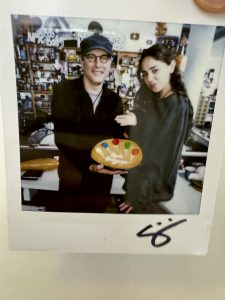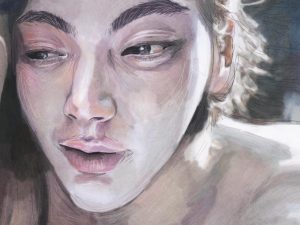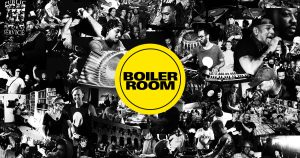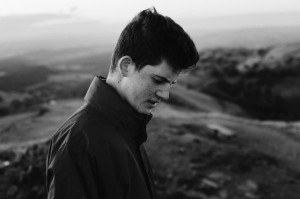In Conversation With: Bob Boilen, Founder of Tiny Desk Concerts
by Flora Bigham | February 4, 2024

“It is very difficult indeed to go anywhere in the world … where people haven’t heard about and watched Tiny Desk Concerts. This is the very definition of a global phenomenon”, read a note to staff from NPR earlier this year. The series of musical performances behind an NPR office desk has come to gain a kind of cult status. Whether it be the over 100m views on Anderson .Paak & The Free Nationals’ performance, or deeper cuts like harpist singer-songwriter Selina Moon, chances are one of your favourite artists have appeared on the series. – or, if not, you will be introduced to a future favourite.
I spoke to the series founder Bob Boilen, who retired in October of this year, on its influence and uniqueness. Returning to the acoustic and the intimate remains integral to musicianship, even for the most successful of artists. Bob agreed that this intimacy is essential, alongside “sentiment. For a fan of an artist that they know, they get to see that artist in a different way, and I think that’s really key.”
This “different way” is due to the rules that Bob sets out for the series. Bob begins by explaining “if it’s not already clear” that the tiny desk in the video is “literally my desk at NPR”. It’s not a set piece curated to mimic authenticity. The array of posters, books, records, and memorabilia are “all stuff that artists have left over the years … it’s very organic”.
Watching concerts over the years, you can “see how much it’s changed”, Bob tells me over our Zoom call between Oxford and Washington DC. It’s transformed from being “the place where I put the CDs I needed to listen to for All Songs Considered [an online-only music show which he helped create and host] to a place that’s become this amazing montage of knickknacks”. The main rule, Bob says, is that “we don’t amplify the voice in the room”. As artists are so used to amplification, this can be difficult, as it is so different to what they do in the studio or at live performances. This challenge creates something interesting: “as a musician myself, that’s the key to creativity … it may be more nerve-wracking for the musicians, but in the end, everybody usually winds up much happier having done something they hadn’t done before, because that’s what creatives like”. They discourage use of pre-programmed elements, because “we want things to happen in real time”. Additionally, monitors (speakers used in live performances for musicians to be able to hear themselves above the background noise) are not used, as they “tend to isolate … we try to keep it so everybody needs to listen to everybody”. Again, this can prove challenging with the singer up front and the musicians playing behind them, but this is “what creates the different outcome that you’ve seen here as a viewer”.
Challenges may lead to mistakes and artists will often request to re-record certain songs to correct over them. However, Bob says: “we try to discourage that. It’s not about perfection. In fact, it seems that some of the things that are not perfect are part of the reason why people like it, you get spontaneity, which is a thing I love more than perfection”. With flaws, the curtain is drawn back from the perfected façade curated for the more established artists, to reveal the real person whom viewers can then connect with more intimately. Artists enjoy the challenge, as “they’re practising in ways they’ve never done [before], and artists will say to me, ‘wow, it’s so cool to be in the room and sing out loud without headphones on and hear their voice standing next to me because we never do it that way’”.
The Tiny Desk series is so uniquely identifiable to the physical desk in the NPR office with its array of memorabilia collected over the years that I wondered how the series could translate to being at ‘home’, or in a different location, for their Tiny Desk (Home) Concerts. Come again, the rules. “I wrote up a series of guidelines”, Bob tells me. “No earphones, no reverb on voices,” and so on. “Truth is, musicians don’t read directions very well, and so we turned down a number of submissions that we did get. But there are also some that kind of walk the line, and walk over the line, that we did allow because we didn’t have any control, we weren’t going to be in their space … it was really tough times, and it was a really hard thing for lots of musicians to get together at that time. So we were empathetic.” Even away from the eclectic location and intimate audience, the home concert series was just as popular – “I think we all needed these concerts during that time. I think it was just good to have them out there.”
Bob began the series with his colleague Stephen Thompson after they went to see folk-pop singer-songwriter Laura Gibson at SXSW festival in 2008. The venue was “basically a bar with people watching … basketball games and screaming at the TV. Laura was singing and she was really quiet, and we couldn’t hear her. When she came off stage, my workmate Stephen Thompson said to her: ‘we couldn’t hear you, why don’t you just come play a private concert for us in our office?’ And he was completely joking [but] my brain, just like as a former TV producer, audio engineer and stuff, thought, ‘Oh my God, that would be amazing’.” A few weeks later while she was in Washington on tour, Gibson came into the NPR offices and performed. Bob and Stephen walked into the camera frame for an interlude between the first and second song, to outline the origins of the idea, proceeding to say, “maybe this is the start of something, maybe it’s not”. “We had no idea”, Bob tells me fourteen years later, the series since evolving from simply wanting to hear the performer to a “global phenomenon”.
How then, did this rather humble, singer-songwriter-focused, recorded performance turn into the series as it is today? “When we did it, it was really cool … [we thought] why not do another?”, Bob replies. The video was posted online on a blog site (rest in peace Blogger) and garnered especially positive comments. “People loved it … much more than I would have imagined”, Bob recounts. Robin Hilton, the producer of All Songs Considered, then brought in the next artist, Vic Chestnut, and they continued to post as popularity persisted. The turning point, when it “really blew up”, Bob says, was “a handful of years later” when “our workmate Frannie Kelley brought in T-Pain”. One of T-Pain’s characteristic performance techniques is vocal treatment, particularly the extensive use of autotune. But vocal effects do not correlate to the Tiny Desk rules and thus, his acoustic performance was “kind of eye-opening for a whole different audience of people”. Bob elaborates: “he wound up embracing it, in fact doing tours basically in that same spirit”. From then on, popularity grew, and it “opened up to a much broader audience”, from the previous singer-songwriter-based roster of artists to classical, R&B, hip-hop and more. Such a broadening of genres and performers was not planned, Bob emphasises. They didn’t think about trying to reach different audiences with certain performances – “we’re just not those people … it was very organic.”
During Laura Gibson’s performance, Bob also turns to the camera to say “Laura should be heard”. While the process of choosing artists is organic, those who are platformed feel intentional – there are no throwaway performances or ones organised for the sake of popularity. “I have a rule”, Bob says, “well, had a rule because now I’m retired, but anybody at NPR Music could pitch an artist to me, but they had to be passionate about the artist. And if they weren’t, then forget it. It’s really easy to say, ‘ohh wow, that would be really popular. We should do that.’ But I hate that, my brain wants to explode when I hear that kind of talk.” There was a wide variety of musical tastes within the NPR music staff and so Bob wanted to “best represent that wide variety of tastes”. He personally “loves bringing unknowns”, something he focused on in All Songs Considered. Performing on the series can have a profound impact on people’s lives, and for those who “struggle to sell out a concert or, you know, be heard”, platforming them is essential in showcasing their artistry and building their audience.
Bob began at NPR in 1988 editing interviews, but his first encounter with the company was when he was interviewed about the piece he wrote for a sound and visual installation at the Smithsonian National Museum of American History with the Impossible Theatre Company. ‘Whiz Bang: A History of Sound’, Bob describes, was “an imagined history of sound from the beginning of time to the end of time in, like, 20 minutes”. The installation primarily used sampling, something less common in the early 80s than it is today.
He began writing music after dropping out of college, something he had always wanted to do, but said that he “never thought that something you loved could actually be something that you do in your life”. While in later generations, “the passions that (you) have are the passions that (you) hope to do in their life.’ He notes that “that wasn’t true long ago … but my generation, I think, was the beginning of all that, which I think is a huge change.” Growing up in the 70s, Bob was surrounded by the punk movement, which was “a very do-it-yourself movement”. As opposed to the definition of a musician as someone who is classically trained, “the punk movement changed all that, and so it changed me.” He bought a synthesiser, “which in 1979 was not a common thing to do”, and formed the band ‘Tiny Desk Unit’ with his friend Michael Barron. “My life had changed. I went into the creative world, and it was something no one in my family or many of my past friends had ever thought to do.” After working with Barron, he then moved on to writing music for the multimedia theatre company Impossible Theatre. Bob had never written music before this, “I didn’t write the music [for the band] but I just said yeah … I don’t know why I said yeah, I didn’t know I had the ability”.
After working in theatre and video production, he decided to quit his job, and went to “find the people who did a story on my music five years previous, and … get a job there.” He began editing interviews, which was promised to last for a month. This then grew to two months, “and then within a year, I was directing All Things Considered, which is my favourite radio programme. I was like, how did that happen? I have no idea.” After nineteen years on the show, he moved to NPR music in 2007 and stayed there until October of 2023.
It must have felt pretty momentous to retire and leave the place he had been coming into every day for the past 35 years. His retirement (although I’ve since seen that he came out of retirement for the most recent Tiny Desk by The LeeVees!) was marked by indie singer-songwriter Samia’s concert. After performing her first song ‘Is There Something in the Movies?’, Samia speaks to the crowd gathered around the desk: “it’s really an honour to be here for Bob’s last Tiny Desk, we’re sort of freaking out”, to which you can hear Bob reply in the background, “you’re not the only one”. Samia continues, “I know I’m one of millions of people who have been inspired by your love of music and your taste and your kindness, so we just want to say thank you for all of your work and thanks for having us”.
Bob recounts this last Tiny Desk over our call – “I didn’t expect anything from the artist regarding it being my final one. Much of the footage that happened when the show was over you don’t know about, but they were so, so sweet about it and they brought me this giant cookie that they decorated and then we had a big party afterwards.” As for the moment he stepped away, Bob says: “it’s kind of crazy that I stopped doing it because it was something that brings me, brought me, a lot of joy. But I’ve been involved in like 1,300 of these and it felt like it was time to see what somebody else might do, and also, it’s time for me in my life to try to do different things.” Such different things include working on new music, his weekly radio show on Takoma Radio which he also puts up on Mixcloud (linked below) and photography. He’s also had “a number of offers that I can’t talk about, and it depends on [whether] I want to dive deep and have my week full again or take on something smaller or come up with some new idea, I don’t know. I wanted to see what happens when, you know, one door closes, another one opens. So, it was just time, and as difficult as it was … it just felt right. I didn’t have any regrets.”
Were there any particular highlights over his career that stood out to him? “That’s always a really hard question” Bob replies, but he’s been asked before, and one of the answers is Yusuf/Cat Stevens. He recounts that it “made (him) cry”, as he tried to learn his song ‘Father and Son’ on the guitar aged 16. “It was just powerful to know that I listened to the song when I was 16 years old”, and now “here is this guy. He’s sitting literally behind my desk. He’s playing the song that I tried to learn on guitar when I was 16 years old. I’m now not 16 years old. I had a child who at that point was in his late to mid-20s… and his son was about the same age as mine … it was just mind-blowing.” He also mentions Superorganism, a group of creatives based in London, whose instrumentation included using a straw to blow bubbles in water, toy cars as percussion, and biting into apples. “They’re hugely creative behind the space, so I did love that. I’m going to stop there, it’s too difficult.”
Were there any artists he would have loved to have on, but, for some reason or another, it didn’t work out? “I had, what I called, my white whales”, he responds “Neil Young, Paul Simon, Paul McCartney were certainly three that I would have loved to have. They’re just artists who were super influential for me in my life. But we never could make that happen. That was my running joke, my white whales.” But regret is not an emotion Bob dwells on, “that’s the other part of it … I’ve met so many people who are my heroes, and so it’s been pretty sweet.”
Bob’s career is one of immense success propelled by risk, determination, and opportunism –from agreeing to write the score for a theatre show despite never having done it before, to suggesting an online music show at a time when not many thought the internet would take off. “Everybody’s personality is different. But I do find that, at least what works for me is to try things and go after your passions” he advises “there’s always going to be someone better than you, right? If you think about it that way, which people do, then it’s stifling. So, I try to let go of that stuff.” Something he’s carried with him throughout his career is being a “good listener – and I don’t mean just to listen to music. I mean to other people and their thoughts. That’s really important, to be considerate. But also, don’t be afraid to ask, to stretch your own boundaries … be considerate about what you’re asking about but try to stretch yourself and get outside your box because that’s the way you learn, and sometimes other people might have a better idea of your abilities than you do. When I started at NPR, I was basically a producer tape cutter. They asked me to direct All Things Considered after my first year there and I thought, that’s crazy. I can’t do that. But they saw in me something that I didn’t see, and I said yes, and it worked out really well.”
The evening, or mid-morning for Bob, is ticking on, and Zoom notifies me our meeting will end soon. We part ways, him to preparing a roundup of his favourite songs of 2023 for his radio show, and me, to procrastinating by watching more Tiny Desks.∎
If you would like to listen to Bob’s radio show, previous shows are archived on his Mixcloud: https://www.mixcloud.com/bob-boilen/
Words by Flora Bigham. Photo courtesy of Joshua Bryant/NPR.




